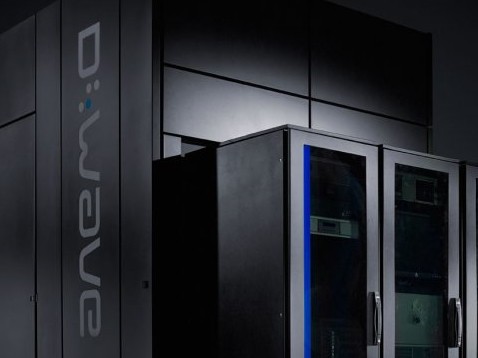D-Wave Systems is most disruptive company we’ve ever seen, says Paradigm

 Canada is home to a company that is so disruptive that it could deliver returns similar to legendary names such as IBM and Intel, says Paradigm Capital analyst Daniel Kim.
Canada is home to a company that is so disruptive that it could deliver returns similar to legendary names such as IBM and Intel, says Paradigm Capital analyst Daniel Kim.
Burnaby-based D-Wave Systems, which was founded in 1999 as a spin-off from the physics department of the University of British Columbia has become nothing less than the leading repository of quantum computing intellectual property in the world, says the analyst. He thinks D-Wave’s customers will be positioned to gain massive competitive advantages because they will be able to solve problems that normal computers simply can’t, such those in areas such as DNA sequencing, financial analysis, and artificial intelligence.
“We stand at the precipice of a computing revolution,” says Kim. “Processing power is taking a huge leap forward thanks to ingenious innovations that leverage the counter-intuitive and unique properties of the quantum realm. Quantum mechanics, theorized many decades ago, is finally ready for prime time. Imagine, if we could go back to 1946 and have the same foresight with the ENIAC, the first electronic general-purpose computer. ENIAC’s pioneers created a new industry and opened up unimaginable possibilities. The same opportunity exists today with D-Wave Systems. D-Wave is the world’s first quantum computing company and represents the most unique and disruptive company that we have seen in our career.”
We stand at the precipice of a computing revolution. Processing power is taking a huge leap forward thanks to ingenious innovations that leverage the counter-intuitive and unique properties of the quantum realm.
Kim says D-Wave is distinguished in part by its approach to commercialization.
“D-Wave’s solution was both simple and brilliant, which solved its two biggest limitations — time and money,” he says. “The company leveraged the collective quantum computer knowledge formulated to date by partnering with the world’s leading experts to help it achieve its goal of commercializing a quantum computer within a short time frame. D-Wave realized this strategy by approaching numerous academic institutions and national laboratories with a proposal: it would finance research aimed at solving these fundamental quantum physics problems; in exchange, D-Wave would either own or have exclusive rights to all the intellectual property (IP) related to this research.”
For evidence of its thought leadership Kim points to D-Wave’s expanding customer list, which he says are all leaders in the respective fields, such as Los Alamos Laboratory, Lockheed Martin, QuAIL, and NASA Ames. He also notes its pedigree of management, board and investors, which includes Goldman Sachs, Tesla, Cray, SGI, Northrop Grumman, DFJ, Bezos Expeditions, and In-Q-Tel (the investment arm of the CIA).
More evidence came last December, when Google’s Quantum AI team and NASA announced early encouraging results of a test involving the physics behind “quantum annealing”, or the process that drives the D-Wave 2X quantum annealer, the computer used in the test, made by D-Wave.
In a research report to clients today, Kim initiated coverage of the privately-held D-Wave Systems.
Nick Waddell
Founder of Cantech Letter
Cantech Letter founder and editor Nick Waddell has lived in five Canadian provinces and is proud of his country's often overlooked contributions to the world of science and technology. Waddell takes a regular shift on the Canadian media circuit, making appearances on CTV, CBC and BNN, and contributing to publications such as Canadian Business and Business Insider.
